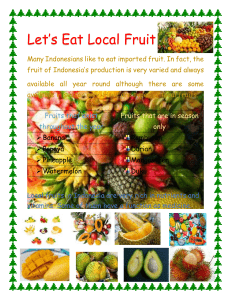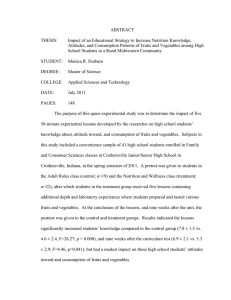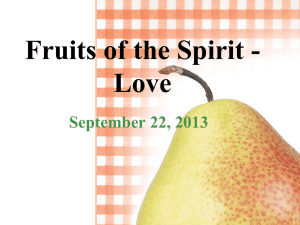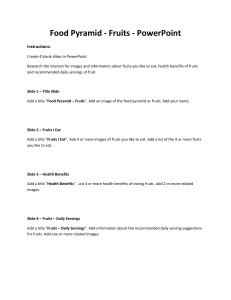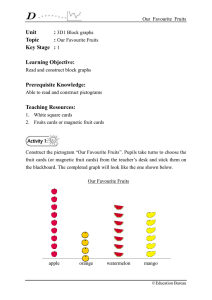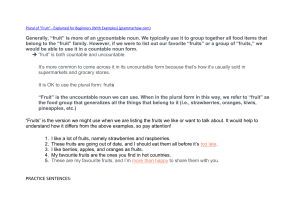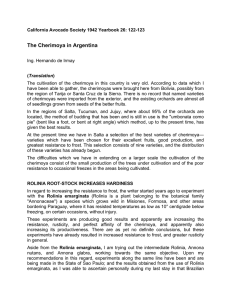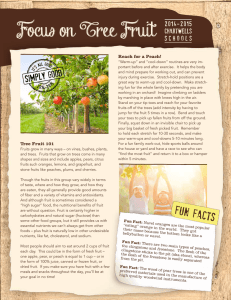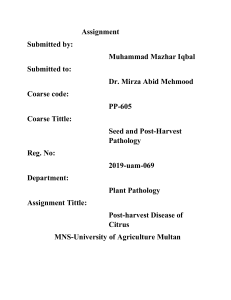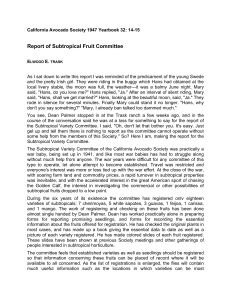Carapace Spots
advertisement
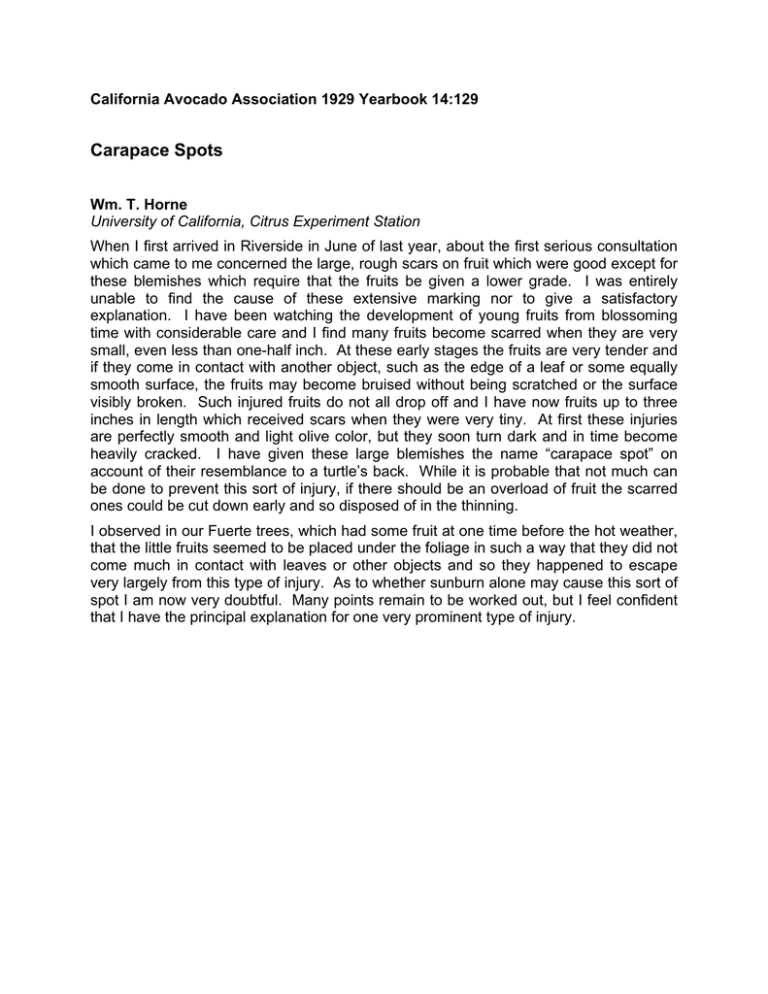
California Avocado Association 1929 Yearbook 14:129 Carapace Spots Wm. T. Horne University of California, Citrus Experiment Station When I first arrived in Riverside in June of last year, about the first serious consultation which came to me concerned the large, rough scars on fruit which were good except for these blemishes which require that the fruits be given a lower grade. I was entirely unable to find the cause of these extensive marking nor to give a satisfactory explanation. I have been watching the development of young fruits from blossoming time with considerable care and I find many fruits become scarred when they are very small, even less than one-half inch. At these early stages the fruits are very tender and if they come in contact with another object, such as the edge of a leaf or some equally smooth surface, the fruits may become bruised without being scratched or the surface visibly broken. Such injured fruits do not all drop off and I have now fruits up to three inches in length which received scars when they were very tiny. At first these injuries are perfectly smooth and light olive color, but they soon turn dark and in time become heavily cracked. I have given these large blemishes the name “carapace spot” on account of their resemblance to a turtle’s back. While it is probable that not much can be done to prevent this sort of injury, if there should be an overload of fruit the scarred ones could be cut down early and so disposed of in the thinning. I observed in our Fuerte trees, which had some fruit at one time before the hot weather, that the little fruits seemed to be placed under the foliage in such a way that they did not come much in contact with leaves or other objects and so they happened to escape very largely from this type of injury. As to whether sunburn alone may cause this sort of spot I am now very doubtful. Many points remain to be worked out, but I feel confident that I have the principal explanation for one very prominent type of injury.
